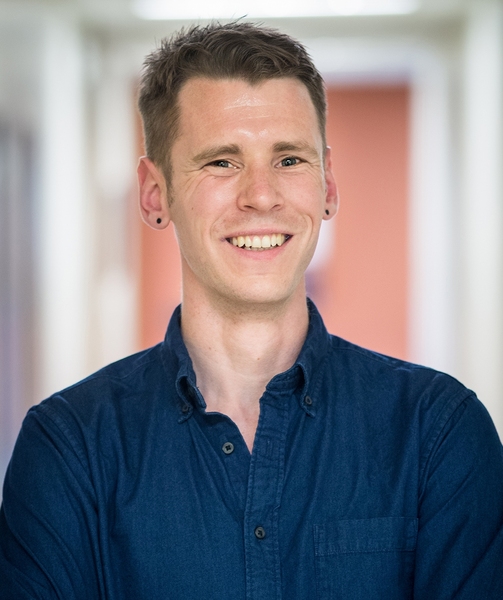When Tony Blair won a landslide victory in 1997, ending 18 years of Conservative Party rule in Britain, Tom O’Grady celebrated. “I was watching TV and cheering on my sofa at 1 a.m.,” he recalls.
Given his fervor for politics, and the fact that he was nurtured by an “extremely liberal family frequently discussing poverty and public services,” O’Grady says it’s hardly surprising that today he is completing a doctorate in political science at MIT. Or that the subject of his dissertation is the evolution of anti-welfare policies in the UK.
The son of parents employed by the National Health Service, O’Grady engaged in formal and informal political activism as a student. He took a gap year after secondary school to do volunteer work with street youth in Ecuador. As a college student at the University of Edinburgh, he headed up the student Labour Party. He thought he fancied a life in elective politics — until his college internship with a member of Parliament (MP) in Scotland.
“One day a week I’d put my suit on, go to his office and write letters to constituents,” he says. “I found that kind of job didn’t suit me because individual MPs can’t effect much change, and I wanted the chance to shape policy.”
In search of such an opportunity, O’Grady earned a master’s degree in economics from University College London, and then worked as a researcher forecasting inflation for the Bank of England. Finally, as a PhD candidate at MIT, he found a question compelling enough to drive years of research.
“I wanted to know why, over the past 30 years or so, there was increasing hostility against the welfare state in the UK, not just among rich people, but also among the very poorest,” he says.
O’Grady first examined polling data to document the decline of support in public opinion for welfare. Then, he says: “I decided to examine the discourse of politicians, measuring what they said about welfare in a rigorous way, to see if what they said had an impact on public opinion.”
This was no simple task. O’Grady downloaded transcripts of speeches in the House of Commons from 1987 to 2015. He wrote software programs in Python, and crafted machine learning tools that could identify relevant phrases and words in speeches such as “welfare reform,” “lazy people,” “people should be working,” and “scroungers.”
O’Grady discovered a dramatic increase in the frequency of these clusters starting in the 1990s. “There was a really dramatic turnaround in rhetoric about welfare, particularly from the British Labour Party,” he says. “In the late 1980s, MPs were talking about the desperate need to provide welfare so people could live, and welfare as a right, and over time, welfare became something that trapped people in unemployment, made them lazy, and encouraged fraud.”
This shift in rhetoric was spurred in part by Tony Blair’s goal of making the Labour Party more electable by adopting more centrist positions. O'Grady also believes the change of parliamentary tone was also the result of a steep decline in the number of MPs drawn from the working class.
“This was due to institutional change, including the collapse of the trade union movement in the UK, which had historically sponsored the political careers of coal miners and other working class tradespeople,” says O’Grady. “Also, political campaigning became more professionalized and expensive, meaning that it was difficult for those outside of the middle class to stand for office.”
O’Grady’s analysis of changes in political rhetoric does not just demonstrate that “working class MPs speak differently from middle class MPs,” but also that “voters are influenced by politicians, and public opinion began to turn only after the rhetoric of politicians shifted.”
The impact of this shift is readily apparent today, he says. “Welfare assistance has been cut quite dramatically in the past 30 years, and the public is now hugely turned against it, even working class voters who might serve to benefit.” Popular opinion, even among those at the lowest levels of income distribution, is that “benefits turn people against working, and while you may yourself receive welfare, others who receive it are behaving badly,” he says.
O'Grady acknowledges that dislodging the stigma against helping people in poverty may take decades. After he returns to England in August to become an assistant professor of political science at University College London, O’Grady says he hopes to push back against the dominant discourse.
“There’s a counter-narrative people should hear, that welfare is something we might all need at some point in our lives, a necessary insurance against adverse events that helps people get back on their feet after they’re down,” he says. “Influencing the public as a policy expert is a challenging task, one that involves doing a good job getting across the facts, but it’s a conversation I would like to start.”







